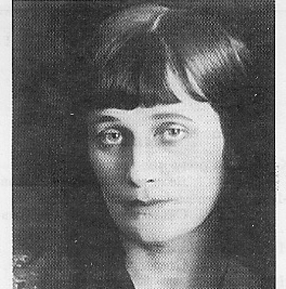[Like a white stone]
Translated from the Russian by Babette Deutsch and Avrahm Yarmolinsky
Like a white stone deep in a draw-well lying,
As hard and clear, a memory lies in me.
I cannot strive nor have I heart for striving:
It is such pain and yet such ecstasy.
It seems to me that someone looking closely
Into my eyes would see it, patent, pale.
And, seeing, would grow sadder and more thoughtful
Than one who listens to a bitter tale.
The ancient gods changed men to things, but left them
A consciousness that smoldered endlessly,
That splendid sorrows might endure forever.
And you are changed into a memory.
[Как белый камень в глубине колодца,]
Как белый камень в глубине колодца,
Лежит во мне одно воспоминанье.
Я не могу и не хочу бороться:
Оно—веселье и оно—страданье.
Мне кажется, что тот, кто близко взглянет
В мои глаза, его увидит сразу.
Печальней и задумчивее станет
Внимающего скорбному рассказу.
Я ведаю, что боги превращали
Людей в предметы, не убив сознанья,
Чтоб вечно жили дивные печали.
Ты превращён в моё воспоминанье.
This poem is in the public domain. Published in Poem-a-Day on March 12, 2023, by the Academy of American Poets.
“[Like a white stone]” appeared in Anna Akhmatova’s collection Belaya Staya (Giperborei, Hiperborei, 1917). The poem was later translated into English and published by Babette Deutsch and her husband, Avrahm Yarmolinsky, in Modern Russian Poetry: An Anthology (Harcourt, Brace and Company, 1921). In “Metempsychosis in the Verse of Anna Axmatova,” published in The Slavic and East European Journal, vol. 25, no. 1 (Spring, 1981), Sarah A. Krive, lecturer in Russian and liberal studies at the University of North Carolina at Greensboro, writes, discussing the concept of metempsychosis in Akhmatova’s poetry, that “[t]ransformations can affect the addressee alone as in the poem [‘Like a white stone’] where the opening simile is presented as similar to a certain memory emanating through reflection from the persona’s eyes. Eulogized by the persona, this oxymoronic sorrow predicated on a certain reflection gives the persona solace. She accepts it passively for it is both a joy and grief. Her eyes express more fully the extent of her suffering than is evident from her narration. The third stanza exemplifies the repeated transformations of humans into objects by gods in the past [. . .]. The recollection [that the addressee] has been transmuted into is a vestige from a former life where both of them were human.”

